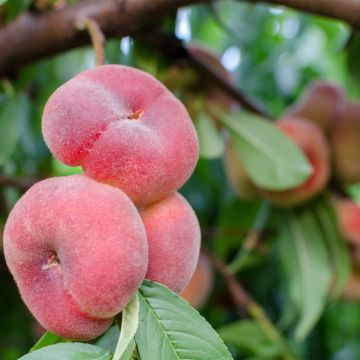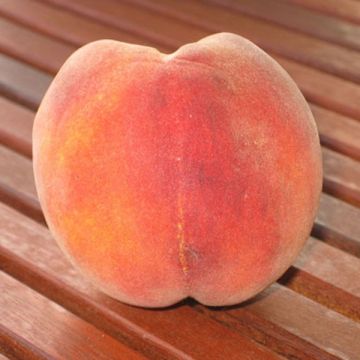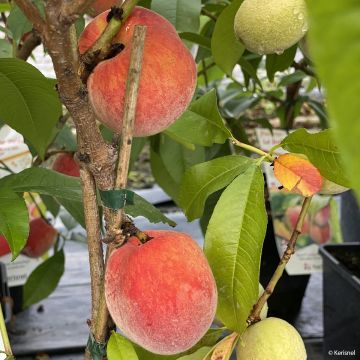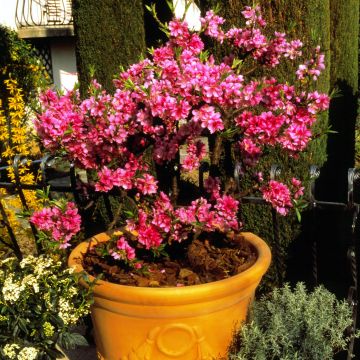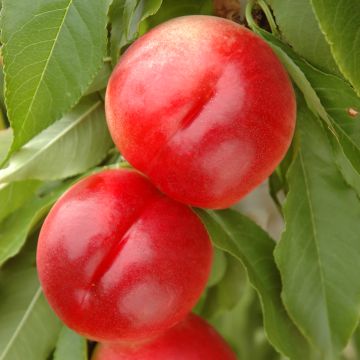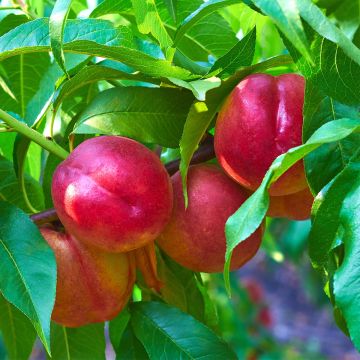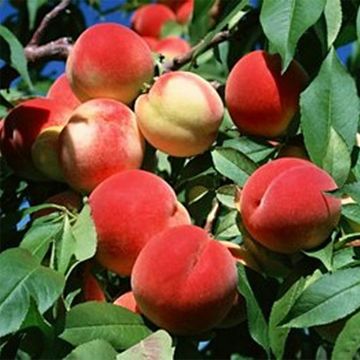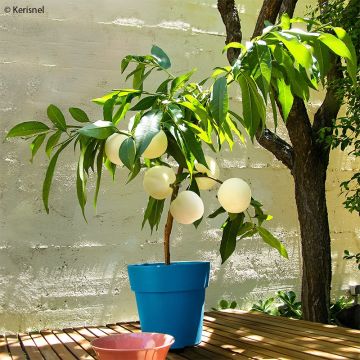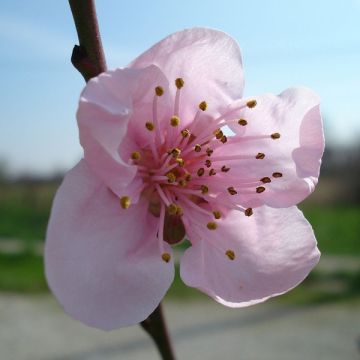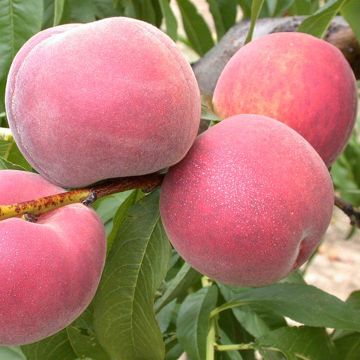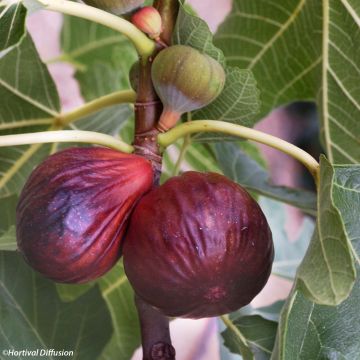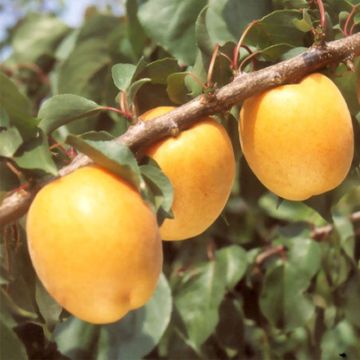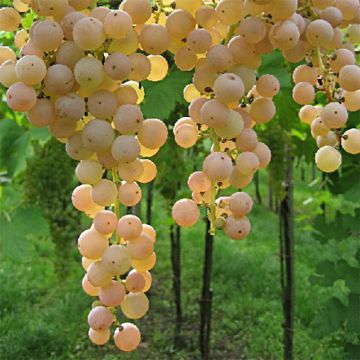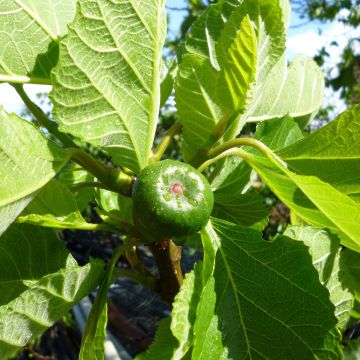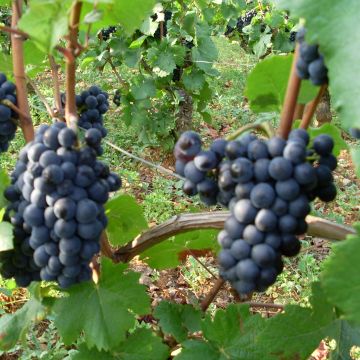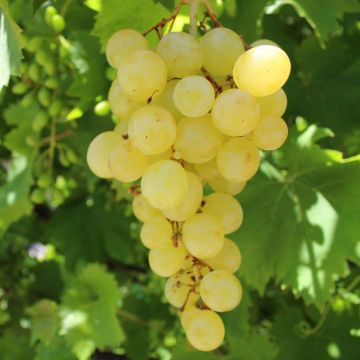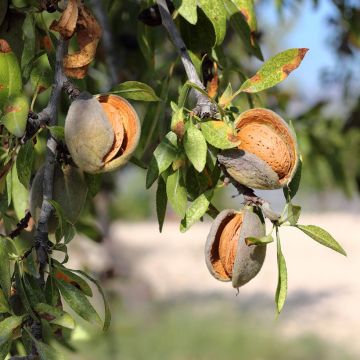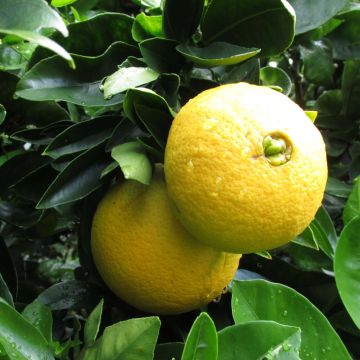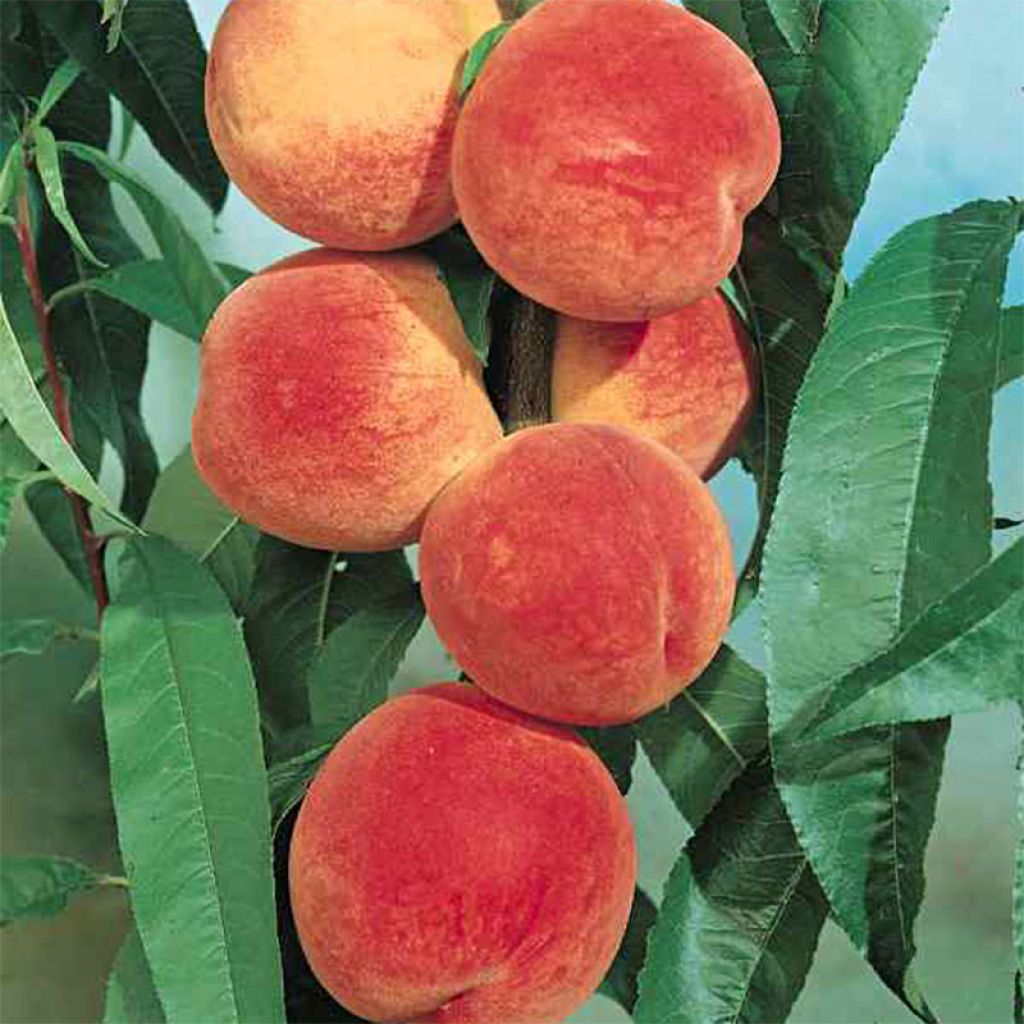

Prunus persica J.H. Hale - Peach Tree
Prunus persica J.H. Hale - Peach Tree
Prunus persica J.H. Hale
Peach, Peach tree
Special offer!
Receive a €20 voucher for any order over €90 (excluding delivery costs, credit notes, and plastic-free options)!
1- Add your favorite plants to your cart.
2- Once you have reached €90, confirm your order (you can even choose the delivery date!).
3- As soon as your order is shipped, you will receive an email containing your voucher code, valid for 3 months (90 days).
Your voucher is unique and can only be used once, for any order with a minimum value of €20, excluding delivery costs.
Can be combined with other current offers, non-divisible and non-refundable.
Home or relay delivery (depending on size and destination)
Schedule delivery date,
and select date in basket
This plant carries a 6 months recovery warranty
More information
We guarantee the quality of our plants for a full growing cycle, and will replace at our expense any plant that fails to recover under normal climatic and planting conditions.
Description
Prunus persica 'J.H. Hale' is a self-fertile, vigorous, and productive variety. It bears large, reddish-orange round peaches (up to 500g) with dark red tones. Its yellow flesh is firm, melting, and juicy. These fruits are ideal fresh or in pastries. It will produce better fruits at altitudes above 500m (1640ft). This variety is resistant to insect attacks. However, it is important to be vigilant against cold and drought. Harvest takes place when the fruit is ripe, late in August and September.
Prunus persica was believed to originate from Persia, hence the species name "persica". In reality, all cultivated forms originate from northern China. Its appearance in Europe occurred in the 6th century and experienced significant development in the 19th century. From there, numerous selections aimed at improving the fruit's taste qualities took place. 'J.H. Hale' originated in the USA, from a chance sowing carried out by J.H. Hale, which gave it its name.
Like many fruit trees, 'J.H. Hale' appreciates light, rich, and deep soils. It does not tolerate excess water or heavy and compact soils well. A sunny location sheltered from the wind will help with fruiting, which can sometimes be irregular, and compensate for its sensitivity to cold. Summer watering during drought will also be necessary.
It is a vigorous tree with an upright habit. Its tall trunk bears many vertically growing branches, giving it an elegant and slender silhouette. Its deciduous foliage is a vibrant green and emits a slight almond scent. Its leaves are long, measuring 8 to 15cm (3 to 6in) in length and 3 to 4cm (1 to 2in) in width, with short petioles.
Its early pink flowering occurs in mid-March. The leaves appear at the same time, which will protect the flowers. The flowers are hermaphroditic and self-fertile. However, the presence of another peach tree will improve fruiting.
Fruit production results in round fruits with yellow streaks on a red background. They have fine-grained, firm, juicy, tasty flesh.
This tree does not require too much maintenance and tolerates pruning well.
Peaches can be enjoyed raw, cooked, flambéed, glazed, or deglazed. They work well in both sweet and savoury dishes. They pair well with wine and certain meats, such as duck. They can be found in numerous recipes, including jams, compotes, and pastries.
Report an error about the product description
Prunus persica J.H. Hale - Peach Tree in pictures
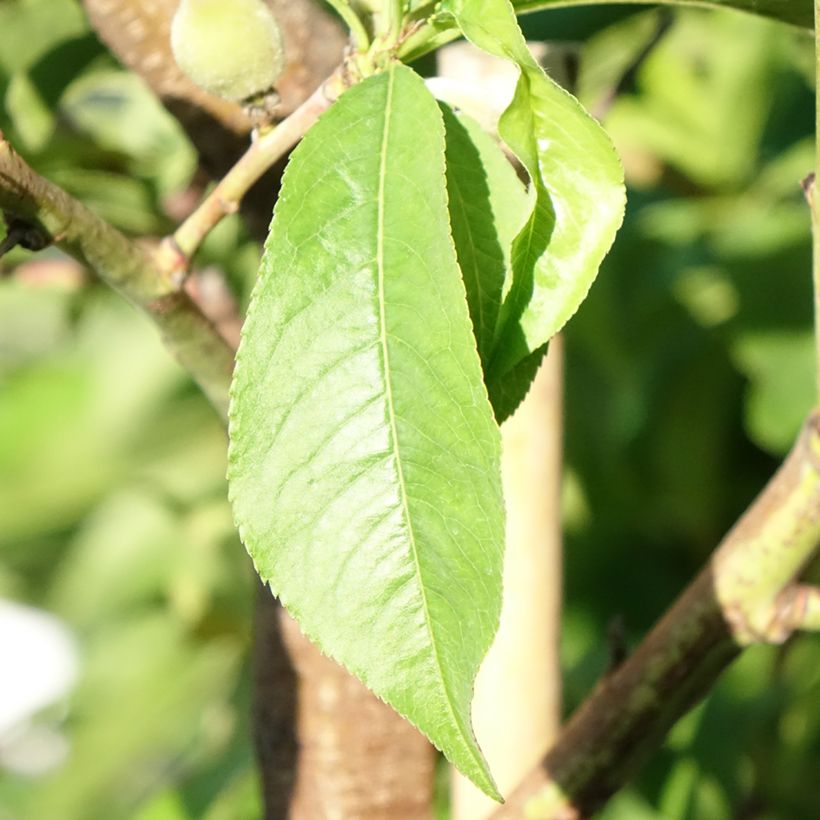

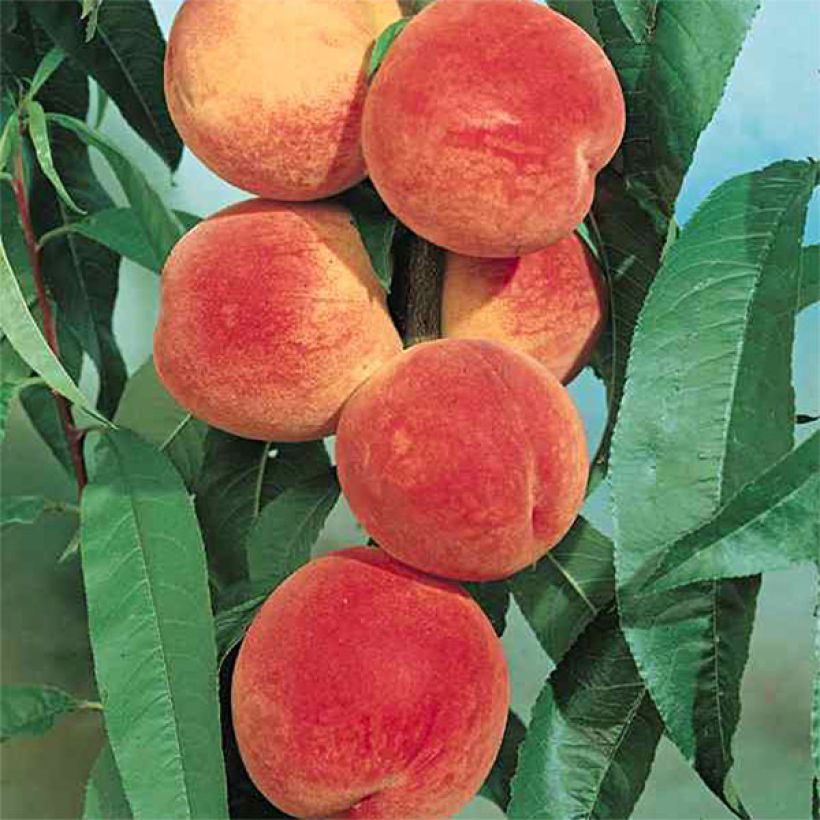

Plant habit
Fruit
Flowering
Foliage
Botanical data
Prunus
persica
J.H. Hale
Rosaceae
Peach, Peach tree
North America
Other Peach and Nectarine trees
View all →Planting and care
Ideally, plant from October to December. Dig a hole two to three weeks before planting, twice as wide and deep as the pot. On the day, place the tree with its pot in a basin of water to moisten the entire root ball by capillarity. Add compost to the bottom of the hole. Place the tree in the hole and fill with a mixture of soil and compost. Gently pack around the base of the tree as you fill, ensuring that the roots are in close contact with the soil. The root ball should be completely covered. Water generously.
This variety has a semi-pivot root system. It thrives in fairly deep soils. It also prefers light and well-drained soil.
Planting period
Intended location
Care
This item has not been reviewed yet - be the first to leave a review about it.
Similar products
Haven't found what you were looking for?
Hardiness is the lowest winter temperature a plant can endure without suffering serious damage or even dying. However, hardiness is affected by location (a sheltered area, such as a patio), protection (winter cover) and soil type (hardiness is improved by well-drained soil).

Photo Sharing Terms & Conditions
In order to encourage gardeners to interact and share their experiences, Promesse de fleurs offers various media enabling content to be uploaded onto its Site - in particular via the ‘Photo sharing’ module.
The User agrees to refrain from:
- Posting any content that is illegal, prejudicial, insulting, racist, inciteful to hatred, revisionist, contrary to public decency, that infringes on privacy or on the privacy rights of third parties, in particular the publicity rights of persons and goods, intellectual property rights, or the right to privacy.
- Submitting content on behalf of a third party;
- Impersonate the identity of a third party and/or publish any personal information about a third party;
In general, the User undertakes to refrain from any unethical behaviour.
All Content (in particular text, comments, files, images, photos, videos, creative works, etc.), which may be subject to property or intellectual property rights, image or other private rights, shall remain the property of the User, subject to the limited rights granted by the terms of the licence granted by Promesse de fleurs as stated below. Users are at liberty to publish or not to publish such Content on the Site, notably via the ‘Photo Sharing’ facility, and accept that this Content shall be made public and freely accessible, notably on the Internet.
Users further acknowledge, undertake to have ,and guarantee that they hold all necessary rights and permissions to publish such material on the Site, in particular with regard to the legislation in force pertaining to any privacy, property, intellectual property, image, or contractual rights, or rights of any other nature. By publishing such Content on the Site, Users acknowledge accepting full liability as publishers of the Content within the meaning of the law, and grant Promesse de fleurs, free of charge, an inclusive, worldwide licence for the said Content for the entire duration of its publication, including all reproduction, representation, up/downloading, displaying, performing, transmission, and storage rights.
Users also grant permission for their name to be linked to the Content and accept that this link may not always be made available.
By engaging in posting material, Users consent to their Content becoming automatically accessible on the Internet, in particular on other sites and/or blogs and/or web pages of the Promesse de fleurs site, including in particular social pages and the Promesse de fleurs catalogue.
Users may secure the removal of entrusted content free of charge by issuing a simple request via our contact form.
The flowering period indicated on our website applies to countries and regions located in USDA zone 8 (France, the United Kingdom, Ireland, the Netherlands, etc.)
It will vary according to where you live:
- In zones 9 to 10 (Italy, Spain, Greece, etc.), flowering will occur about 2 to 4 weeks earlier.
- In zones 6 to 7 (Germany, Poland, Slovenia, and lower mountainous regions), flowering will be delayed by 2 to 3 weeks.
- In zone 5 (Central Europe, Scandinavia), blooming will be delayed by 3 to 5 weeks.
In temperate climates, pruning of spring-flowering shrubs (forsythia, spireas, etc.) should be done just after flowering.
Pruning of summer-flowering shrubs (Indian Lilac, Perovskia, etc.) can be done in winter or spring.
In cold regions as well as with frost-sensitive plants, avoid pruning too early when severe frosts may still occur.
The planting period indicated on our website applies to countries and regions located in USDA zone 8 (France, United Kingdom, Ireland, Netherlands).
It will vary according to where you live:
- In Mediterranean zones (Marseille, Madrid, Milan, etc.), autumn and winter are the best planting periods.
- In continental zones (Strasbourg, Munich, Vienna, etc.), delay planting by 2 to 3 weeks in spring and bring it forward by 2 to 4 weeks in autumn.
- In mountainous regions (the Alps, Pyrenees, Carpathians, etc.), it is best to plant in late spring (May-June) or late summer (August-September).
The harvesting period indicated on our website applies to countries and regions in USDA zone 8 (France, England, Ireland, the Netherlands).
In colder areas (Scandinavia, Poland, Austria...) fruit and vegetable harvests are likely to be delayed by 3-4 weeks.
In warmer areas (Italy, Spain, Greece, etc.), harvesting will probably take place earlier, depending on weather conditions.
The sowing periods indicated on our website apply to countries and regions within USDA Zone 8 (France, UK, Ireland, Netherlands).
In colder areas (Scandinavia, Poland, Austria...), delay any outdoor sowing by 3-4 weeks, or sow under glass.
In warmer climes (Italy, Spain, Greece, etc.), bring outdoor sowing forward by a few weeks.






























